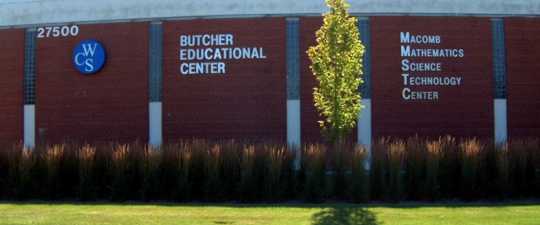Big changes needed to secure millions
By DAWSON BELL
FREE PRESS STAFF WRITER
U.S. Education Secretary Arne Duncan has called the Obama administration’s Race to the Top initiative “education reform’s moon shot,” the larg est pot of discretionary school funding — $4 billion or so — in the nation’s history.
But the scramble set off to qualify for the federal govern ment’s competitive grants has been very much Earth-bound.
In Michigan and other states, legislators and educa tion officials have engaged in a frenzy of deal-making to win Race to the Top funding.
Whether the end result is real classroom change — especially in the chronically troubled schools that are the main target for reform — won’t be known for years.
In the meantime, the enor mous, green federal carrot is generating movement on long stalled measures aimed at at tracting better teachers, open ing more good schools, reward ing results and punishing fail ure. Detroit Public Schools, for instance, would qualify for as much as $70.5 million of a pool of cash up to $400 million.
Final action on Race to the Top could come this week on legislation in three major areas:
■ Expanding the teacher pool. So-called alternative cer tification for teachers, permit ting those trained in areas such as engineering or math to teach without formal training in edu cation, has been a top agenda item for would-be education re formers for decades.
In some states, the pipeline for teachers has been expanded significantly to include mid-ca reer professionals and college graduates with little or no edu cation experience. Michigan hasn’t changed but will have to in order to qualify for Race to the Top money.
State Rep. Tim Melton, D Auburn Hills, a key negotiator, said he expects a deal that would allow college grads with a grade point average of at least 3.0 to work in middle and high schools without a teaching cer tificate. The legislation would require non-traditionally trained teachers to work to ward formal certification after they are hired.
■ Teacher and principal eval uation.
Race to the Top re quires schools to collect data that will allow them to track students’ performance under specific teachers and princi pals. In theory, doing so will al low schools to reward educa tors whose students make mea surable progress and address the shortcomings of others.
Ariela Rozman, chief execu tive of the New Teacher Project in Brooklyn, said efforts to im prove teacher effectiveness are a high priority in Race to the Top and an important factor in snaring the grants. But there are no precise ways to achieve that goal, she said.
Rozman’s group scored Michigan as being only some what competitive overall for Race to the Top funding in an initial assessment this summer and found the state’s data sys tem and methods for identify ing successful teachers and leaders seriously lacking.
The state House and Senate have approved merit-pay legis lation. But significant sticking points remain, including a fun damental disagreement over whether ineffective teachers should be protected from firing by the state’s teacher tenure law. The House version would keep that protection for ten ured teachers. The Senate ver sion wouldn’t.
■ Failing or struggling schools. States are required to have clear guidelines to deal with the worst performing 5% of schools to qualify for Race to the Top funding. Options in clude replacing staff, hiring a management company or clos ing.
Again, the devil is in the de tails. And they are endless.
In Michigan, lawmakers ha ven’t agreed on whether the takeover of a failing school or district should be handled by the state superintendent or a local manager — someone like Robert Bobb, the Detroit schools’ emergency financial manager. Last week, he asked for authority over academics, as well.
Relaxing the cap on more charter schools — often cited as a key objective of Race to the Top — also is unfinished busi ness for the Legislature. Teach ers unions and local school offi cials have long opposed efforts to permit more charters.
Jeanne Allen, at the Center for Education Reform, based in Washington, D.C., said both the federal program and the states likely will fall short of what is needed to address failing schools — a way to quickly shut one down and provide students with a good alternative.
Allen said initial promises from Duncan that schools would be encouraged to re move barriers to charter schools were a smaller part of the final standards than prom ised.
“A lot of these reforms are good and nice; they’re not path breaking,” Allen said.
Making bigger change re quires taking on too many insti tutional interests, especially unions, she said.
Teachers unions, which have traditionally opposed charters, have been less ada mant in the Race to the Top de bate, in part because they say the new rules will create more oversight of charter schools, as well as of traditional schools.
Still, Michigan’s lawmakers and school leaders are eager to land the possible $400-million prize to ease the pain from de clining state revenue and local property tax collections.

No comments:
Post a Comment